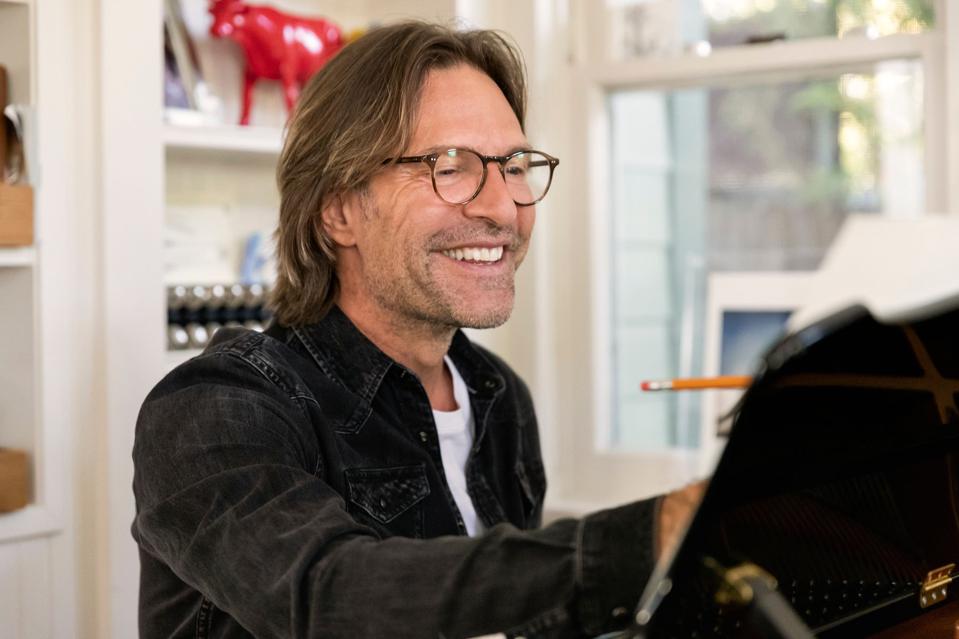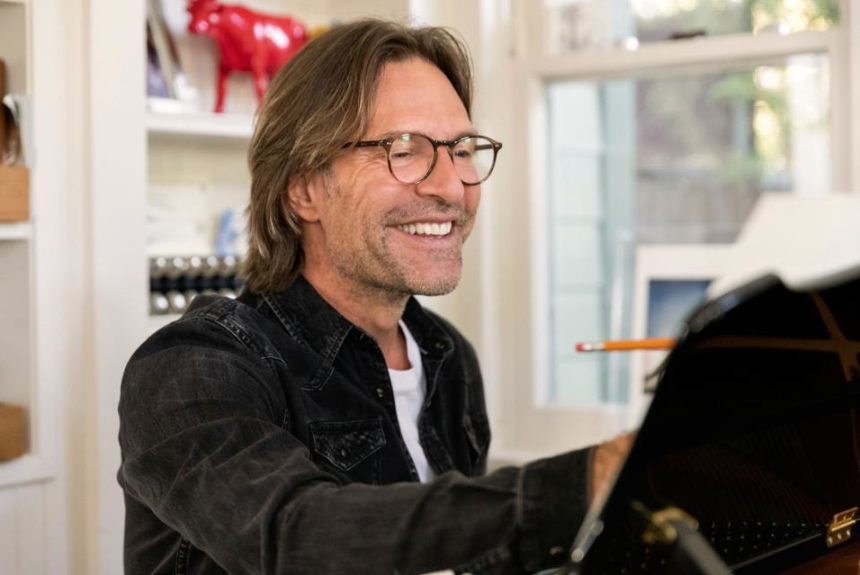Part of Kathy Caprino’s series “Creativity at Work”
As a lifelong singer and performer, I, like so many others who sing, were so saddened by recent findings that singers are considered to be “super-spreaders” of Covid-19, and that gatherings of singers, and their public performances, can be a dangerous environment of contagion of the virus. The vocal group I perform with, The Wilton Singers, based in Wilton, Connecticut, was forced to cancel its Spring concert due to the pandemic, as so many other professional and non-professional vocal groups around the world have experienced as well. And plans for our upcoming 2020 performances and rehearsals are still to be decided. Safety is of the utmost concern, but the realization that we cannot come together in song for the foreseeable future (which our group has been doing for over 35 years) is a very difficult one.
According to 2018 Chorus Impact study, choral singing has been on the rise in the U.S. and offers a variety of vitally important benefits. Here are some interesting findings:
- The number of Americans engaged in singing has increased over the past decade, with more than 54 million adults and children participating in choral groups today.
- More than one in six Americans over the age of 18 sings in a chorus.
- Music education in schools has been found to be key to lifelong singing and the benefits it brings.
- Choral singers credit singing in a chorus with making them more optimistic, mindful, and resilient.
- 80% of singers expect more good things than bad things to happen to them, while only 55% of the general public has the same positive outlook.
- Singers are also more likely to feel a sense of purpose in their lives and to find their lives meaningful.
In attempts to provide an avenue for continued group singing during the pandemic, many choral conductors, composers and others have created “virtual choir” opportunities where singers submit their recorded performance of their particular choral part of a piece via video or audio, for assembly into a final edited piece with all parts represented.
But when singers think of virtual choirs, most often one name emerges as the forerunner—that of composer and conductor Eric Whitacre. Whitacre’s first virtual choir was featured in a viral 2011 TED Talk that assembled performances of 185 singers from twelve different countries. To date, Whitacre has created 6 virtual choir projects, and his Virtual Choir 6—“Sing Gently”—premiered on July 19th, 2020 featuring 17,572 singers from 129 countries and has since been viewed on YouTube over 1 million times.
Here’s a look:
I participated in “Sing Gently” and it was a thrilling and moving experience in so many ways. Nine of my fellow Wilton Singers performers also contributed to the Virtual Choir 6, and they shared similar feelings of elation, unity, compassion, connection to others, and a much needed experiencing of coming together to raise our voices as one, which we all had so deeply missed.
To learn more about his latest virtual choir phenomenon, I was thrilled to catch up with Whitacre this week. Whitacre is a Grammy-winning composer and conductor and one of the most popular musicians of his generation. His concert music has been performed throughout the world by millions of amateur and professional musicians alike, while his ground-breaking Virtual Choirs have united singers from over 129 different countries and achieved more than 60 million views.
Here’s what Whitacre shares about his Virtual Choir 6 and the impact it had on him and others:
Kathy Caprino: Eric, can you tell us about your latest virtual choir project and what led you to launch this now?
Eric Whitacre: Well, like the rest of the world, I was just stunned and in shock when the full force of the pandemic became clear. In the middle of March, I talked to Claire Long and Meg Davies of Music Productions—the executive producers of the Virtual Choir Project—and shared my view that if ever there was a time to make a virtual choir, it’s now.
This time when singers all over the world not only can’t sing together but have been labeled as “super-spreaders”—that something so benign and benevolent as singing has suddenly become a dangerous thing. And just this, with this need and an ache to sing together, made me feel that this project was the right thing to do.
Caprino: How did the concept of a virtual choir emerge for you with your very first one? Did you expect such a large response?
Whitacre: It began for me with a single video in 2009. A young woman named Britlin Losee uploaded a fan video to me singing the soprano line—the top line— to a piece that I’d written called Sleep. She didn’t know me. She just pushed play on a CD player and sang her line over the top of that and then uploaded it, hoping it would find me and it did.
I saw her video and I thought her intention and her voice were just so pure. And I thought to myself, “If I could somehow get 25 people doing what Britlin was doing, singing their part—Soprano, Alto, Tenor, and Bass—we could create a virtual choir. As long as they were singing in the same key and in the same tempo, the same speed.
If I literally just took all of their videos and started them at the same time, this virtual choir could unfold. And that’s what happened. This is the very first virtual choir, which is called Lux Aurumque, which is Latin for light and gold, and it had 185 singers from 12 countries.
But I honestly thought that it would only be seen by my fellow choir geeks and the massive response to it was completely unexpected and totally overwhelming. Suddenly, singers from all over the world were writing to me and saying, “This is extraordinary. What is this! And I have to be a part of it. When is the next one?” It never even occurred to me that we would do a second one.
Caprino: Why do you think that it has had such a profound impact on the lives of the performers and the viewers?
Whitacre: I think it’s because, at our core as human beings, this is what we do. We find each other and connect, and there’s no better metaphor for that, I think, than singing. Something beautiful happens when you’re in a choir and sing together—that you literally blend in with the voices around you. It’s not that you lose yourself, but you become part of something much larger than yourself.
The art of choral singing is about the bringing best of who we are and that we come together only to make something beautiful, to make something larger than ourselves.
And so it is when we see the poetry of the virtual choir—literally see it on the screen—with all of these disparate faces coming together from all over the world. We’ve had singers as young as four and as old as 98, of all races, creeds colors, all coming together to make something beautiful.
I feel that it’s very profound for not only the people who are watching it, but the people who are singing in it as well.
Caprino: How has creating these projects impacted your life as a composer, musician and director, and what has it brought into your life?
Whitacre: For the last decade now, I’ve been making these virtual choirs, and so I would say it’s profoundly changed my life as a composer and as a musician, because suddenly I’m making music with people all over the world in a very profound and intimate way.
These are people I’ve never met and most of them, I will never meet in person, but somehow in the process of creating these choirs, I think we’re all bound together in this very unexpected and beautiful way.
It’s brought into my life a sense of beauty and a sense of more and more compassionate empathy for the people around me to see that truly we have this common denominator that is singing and music making together. It is genuinely something that unites any group of people.
Caprino: Tell us about the premiere on July 19th. What were the highlights and the surprises?
Whitacre: Ha! Well, even before the premiere, we had the biggest surprise—we had 17,572 singers participating! I thought to myself, “Oh my gosh – it’s so many people!” I was knocked out by that.
And then when we released it, I was surprised at how emotional I got. This is my sixth virtual choir, and actually we did two more: a virtual youth choir and one for Disney, an honor choir. So a total of eight virtual choirs over the past 10 years.
The videos, the sound of the singing—there was a kind of release from all of the stress and anxiety and the sense of unknowing that we’ve all been having for months. It really came together for me. And I felt it release a bit at the moment of the premiere. That was unexpected and really wonderful.
The highlight for me was the after-party. The after-party is basically an hour of talking and taking questions from people who had been in the virtual choir. And just how extraordinary that is, seeing all of these people from all over the world and how deeply they were impacted by it, how moved everyone was. That was definitely a highlight.
Caprino: Finally, what’s next for you?
Whitacre: Over the past three years, I’ve been writing a piece called The Sacred Veil. It’s an hour-long piece for choir, cello and piano, and it was written with my best friend, Charles Anthony Silvestri—a poet and longtime collaborator. And Tony, as I call him, lost his wife Julie to ovarian cancer 13 years ago, and finally felt that he was ready to write about it.
So The Sacred Veil tells the story in 12 movements of their first love and courtship, having a baby, the diagnosis, the struggle, Julie’s death, and finally a kind of a benediction at the end. It was recorded just before the Covid-19 lockdown at the end of January, and it will be released August 28th.
I’m very proud of the work that Tony and I did on this, and am humbled to be presenting this work to the world. It’s far and away the most intimate thing that I’ve ever written. In the end, I hope that it can provide a sense of comfort or solace to listeners.
For more about Eric Whitacre and his virtual choirs, visit ericwhitacre.com. And to learn more about The Sacred Veil, visit https://ericwhitacre.com/recordings/the-sacred-veil.
To build a more rewarding and impactful career, read Kathy Caprino’s new book The Most Powerful You: 7 Bravery-Boosting Paths to Career Bliss and work with Kathy.

